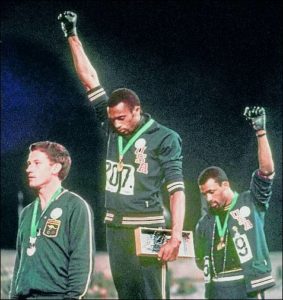I would also like to leave earth for a while. It’s gotten kind of crappy recently.
Category: Uncategorized
1. I missed something and didn’t graduate after all. Goon squad picks me up from work to take me back to high school.
2. I can’t find my class schedule or my locker combination.
3. Dress code violation.
4. A teacher confiscated my car keys and I can’t leave.
5. My parents forgot to pick me up for 18 years.
6. I did my homework but I can’t find it to turn it in.
7. I didn’t know we had homework (because I was at work, doing my adult job).
8. Missed the bus and locked out of my house. Knocking on neighbors’ doors to use their phone to call my mom.
9. Can’t find a door to leave the school, but other people can and leave without me.
10. Can’t find my place in line at graduation. Don’t graduate. Doomed to repeat twelfth grade forever.
Allies
If you don’t know, I’m white. I’m 100% Scotland/Ireland/France white. Pug nose, un-tannable fishbelly white. My hair has been turning white since I was 19. I slather on the moisturizer, but I have had wrinkles since middle school.
But. I live in the south. I have lived in the south my whole life. The most north I’ve ever lived is D.C., and that’s still the south (technically). I am familiar with race relations. It’s not like I spent my life in Omaha or anything where I don’t even know if they have “persons of color.”
A lot of people want to be an “ally.” Whites want to be allies for blacks. Straights want to be allies for gays. Men want to be allies to women. And on and on. But a lot of these people don’t understand that to be an ally, you have to be willing to pay for it. You have to be risking something.
When I think about allies, and what it really means to be an ally, I think of a white Australian guy named Peter Norman. Peter Norman won the silver medal in the 200-meters at the 1968 Summer Olympics. His time, 20.06 seconds, still stands as the record time for an Australian running 200 meters. Two African-American athletes, Tommie Smith and John Carlos, won first and third place.
You’ve seen this photograph. Two black athletes on an Olympic podium, raising their fists in the Black Power salute with their heads bowed. They’re wearing black gloves—Smith on his right hand, Carlos on his left. It’s a powerful image of hope and reverence and defiance. And next to them, sometimes cut out of the frame, is Peter Norman.

After the race, Smith and Carlos told Norman what they planned to do on the podium. They asked if he believed in human rights, and God, and Norman said yes. He said, “I’ll stand with you.” And when Carlos left his gloves in his room, Norman suggested they share the pair they had with them. Carlos said he expected Norman to look afraid when they got up on the podium, to see fear in his eyes, and he didn’t. Carlos said, later, “I saw love. Peter never flinched.”
When Norman went back to Australia, he wasn’t well received. Australia refused to send him to the 1972 Olympics, even though he qualified repeatedly. In fact, Australia didn’t send a men’s track team at all. In the 80s, Norman tore his Achilles tendon, then later suffered from alcoholism, a painkiller addiction and severe depression.
Norman died in 2006.
Smith and Carlos were pallbearers. They stood side by side, at the front of Norman’s funeral procession, his coffin on their shoulders. “Go and tell your kids the story of Peter Norman,” Carlos said.
This is what I mean when I say that if you’re going to call yourself an ally, you have to be willing to risk what you have. And you have to take that risk unflinchingly, and with love.
Quod licet lovi, non licet bovi
What is permissible for Jove is not permissible for an ox.
I have this phrase written on a notecard. When I lived and worked in D.C., I kept it in this stack of notecards I carried around as a to-do list. Now, because I mostly use a notebook, I taped the notecard to my computer monitor next to a photo of Charlie Duke at the CAPCOM desk at NASA Mission Control.
These are anchors.
At work, and in life in general, double standards exist. Some people get perks other people don’t get. Some people have to follow rules and other people never do. That’s how the world works. I’m a relatively low-ranking employee, with a relatively un-prestigious job, so I follow a lot of rules. I can’t get angry at other people because they don’t have to follow the same rules, because they don’t have to jump through all the hoops I do. I can’t be envious. I can’t be jealous. I can’t waste time because I can only keep working.
Charlie Duke is the youngest man to walk on the moon. Before that though, he was on the backup crew for Apollo 11. When NASA set up mission control, and developed the systems of how to run itself, some genius systems engineer figured that there should only be one person to talk to the astronauts in space. Instead of a bunch of different people relaying messages, everything would go through one person. And the person who would know best, and be the best capable to relay these messages, would also be an astronaut, and usually be someone on the backup crew for that mission.
So on Apollo 11, when Neil Armstrong landed the lunar module on the surface of the moon, the person he told was Charlie Duke.
Charlie Duke was born in North Carolina, and has a distinctive North Carolina accent. When Armstrong said he landed, it’s Duke who answers “Tranquility, we copy you on the ground.”
I’m not the star. I’m not the Neil Armstrong of my world. I’m not “The Guy.” I’m the guy the guy counts on. I’m the person who has your back. That’s who I want to be, who I’m best at being, and there’s no shame in that.
In high school, I served as stage manager for a big musical we put on. A lot of my friends were singing and acting in it, but I knew that wasn’t for me. I was in the wings, wearing a headset, giving lighting cues and pulling the curtain. It was a K-12 school, so sometimes there were little kids around at rehearsal. In the play, there’s a scene set on a TV stage, and there’s a Stage Manager character who places the actors and then walks off. Instead of having another person do it, they just had me do it. One day after rehearsal, a little kid told me that maybe next year they’d let me have a real part. I explained that I did have a real part, and the best thing about my part was that if I did it well, nobody would even notice I did it at all.
I have to be resolute. I am a cow.
